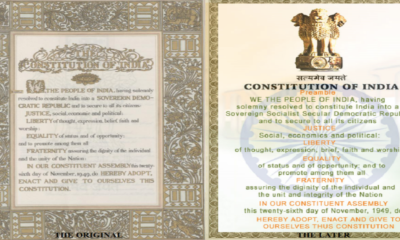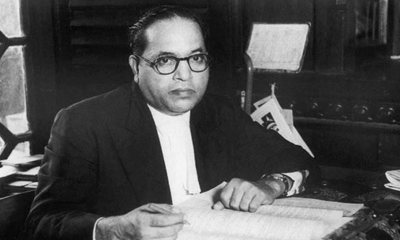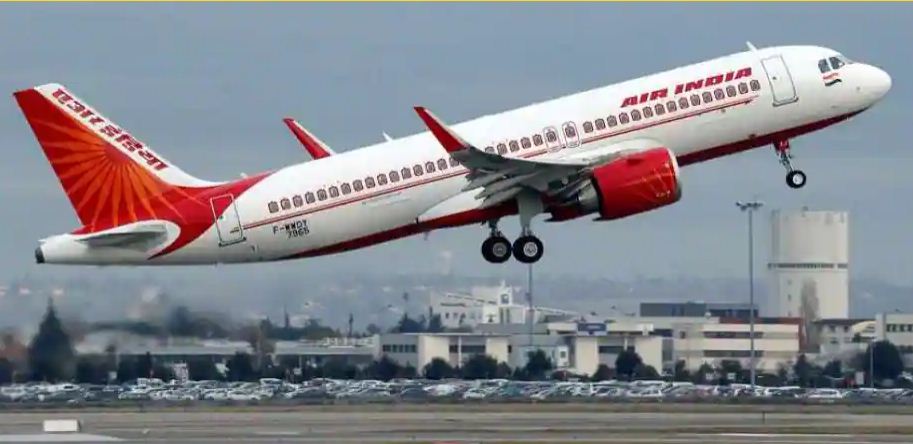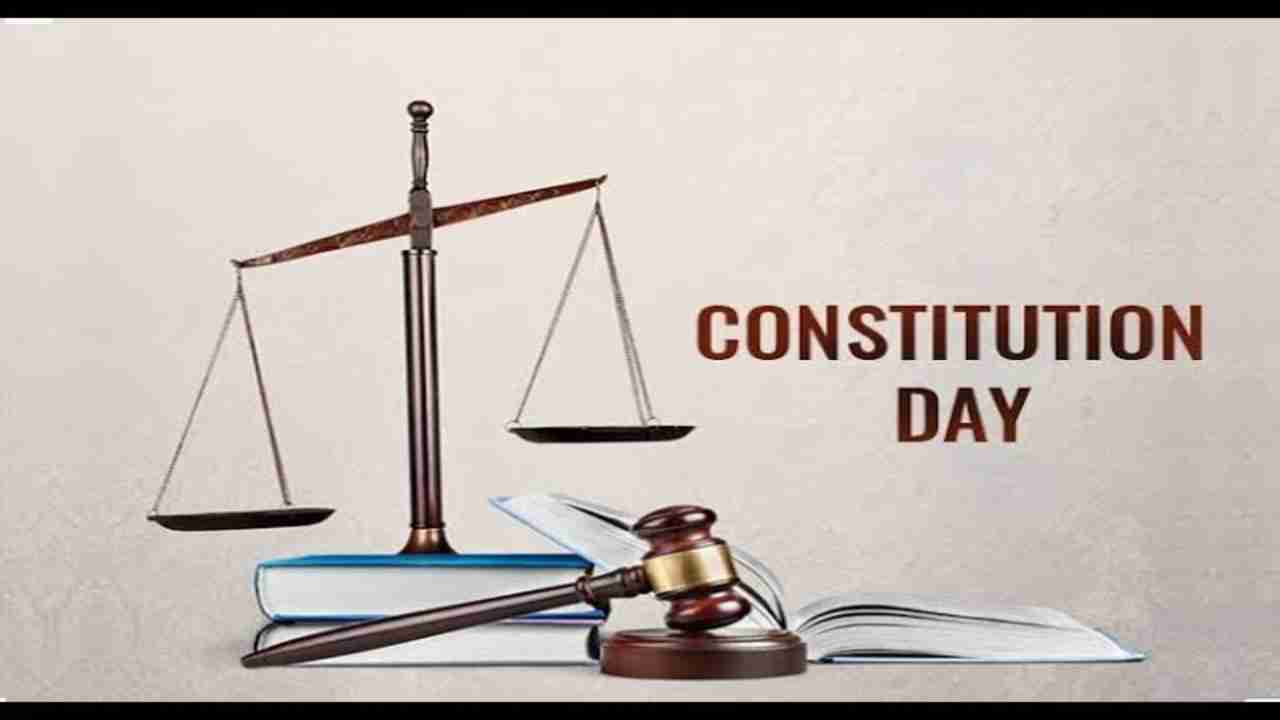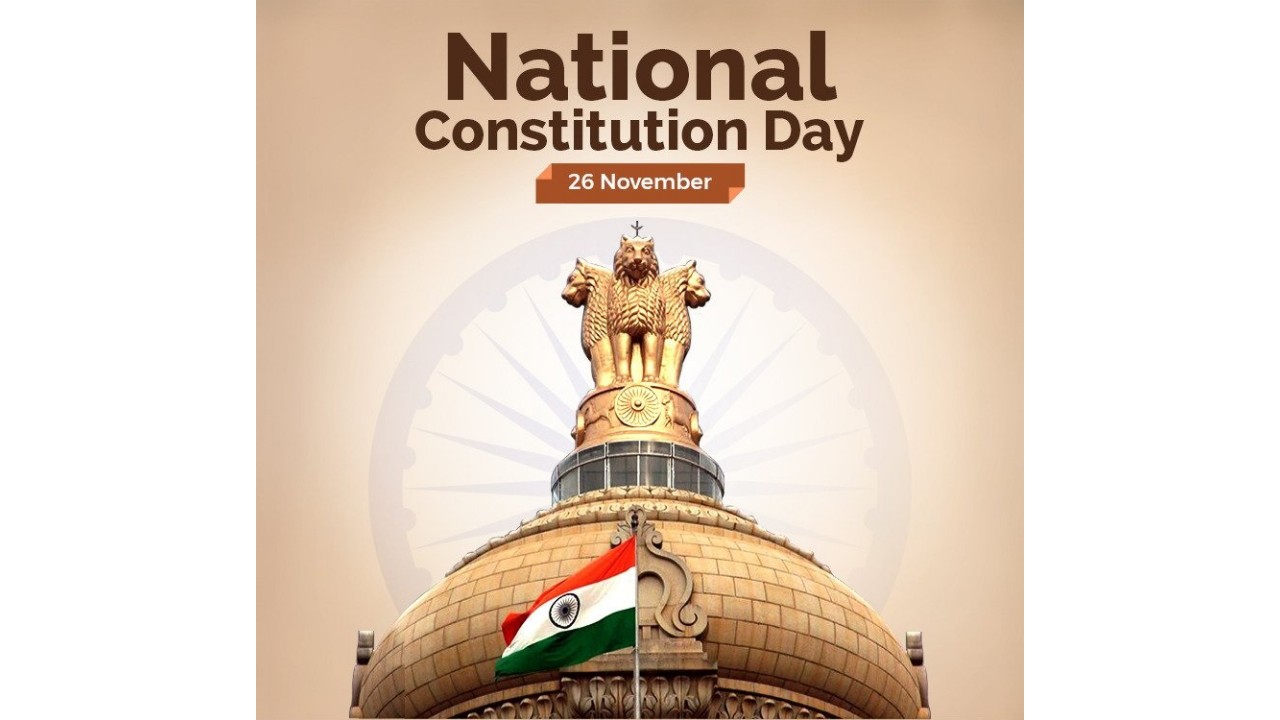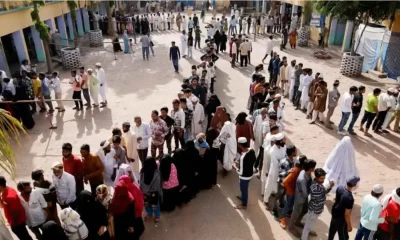Education
Happy Constitution Day 2021: Short essays that can make you win competition on Samvidhan Diwas
Dr Ambedkar concluded the drafting of the Indian Constitution and presented it to the Constituent Assembly in early 1948. This Constitution Day was adopted on 26th November 1949.
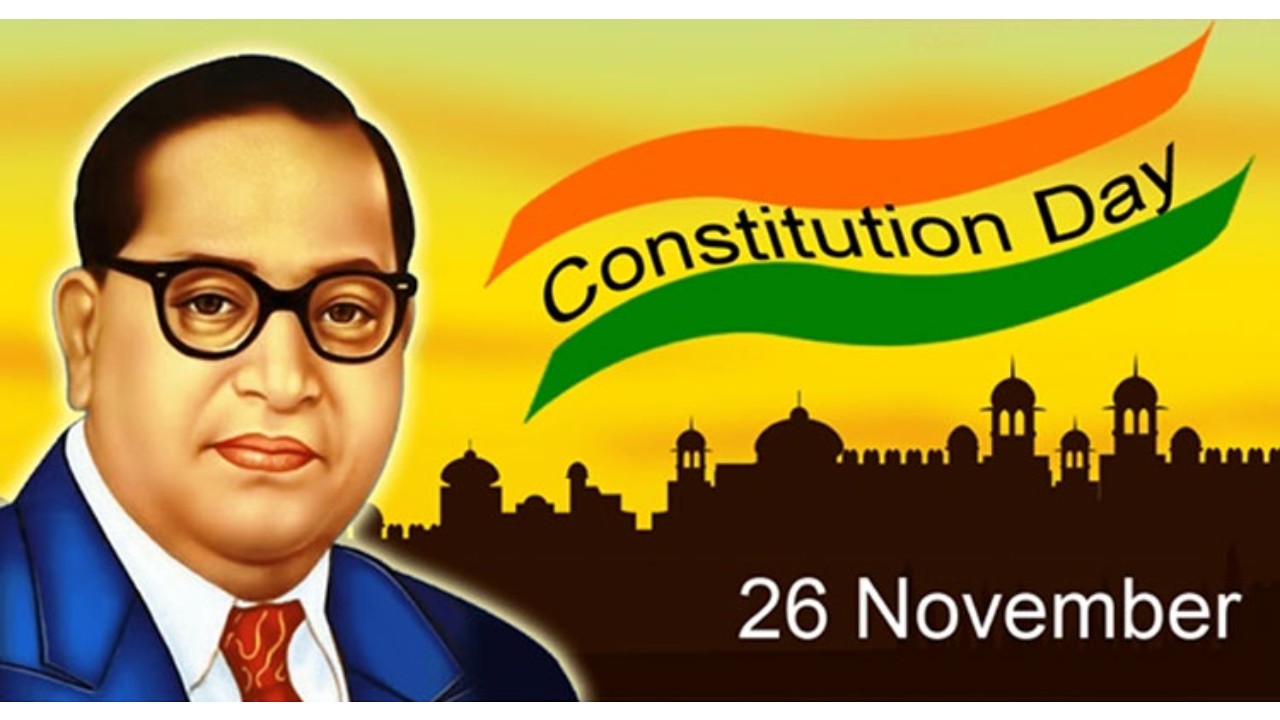
The Constitution of India was adopted by the Constituent Assembly on 26th November 1949 and came into force on 26th January 1950. Also known as Samvidhan Diwas, Dr Bhim Rao Ambedkar concluded the drafting of the Indian Constitution and presented it to the Constituent Assembly in early 1948.
This proposal was accepted on November 26, 1949, with a few amendments.
Following India’s independence, the Constituent Assembly delegated the task of drafting the Constitution to a committee led by Dr Bhimrao Ambedkar. Dr Rajendra Prasad, the first President of India, was the President of the Constituent Assembly.
Here are some essays about the Constitution of India.
Essay 1
The constitution of India is one of the lengthiest constitutions in the whole world which contains a preamble, 22 parts with 448 articles, 12 schedules 5 appendices, and 15 amendments. It is the only constitution in the whole world which was handwritten completely in two languages, Hindi and English. The Constitution of India was handwritten by Prem Behari Narain Raizada.
The constitution of India says that the republic of India is a sovereign, socialist, secular and democratic republic. The constitution also celebrates the values of justice, liberty, equality and fraternity for all the people in the country without any discrimination. The constitution of India assures the citizens their economic and political justice, liberty of thought, expression of faith, belief and worship. Although, in recent years certain articles and clauses of the constitution have been overstepped which is a dangerous precedence for the democratic values of the country.
Essay 2
India is a democratic country and its constitution is the largest constitution in the world. Dr Bhimrao Ambedkar created it and because of this, he has been called the father of the Indian Constitution. The Indian Constitution is inspired by the US Constitution.
The Constitution of India was passed on January 26, 1949, and was fully implemented in 1950. It took 2 years 11 months and 18 days to build the Indian Constitution. The first Constituent Assembly was sitting on December 9, 1946. The constitution is divided into 22 parts. It has 465 articles and 12 recommendations. The last meeting of the Constituent Assembly was held on November 24, 1949.
The constitution of Bharata is in written form. It is needed to give the people their fundamental, political and social rights. The Constitution is protected by the Supreme Court. Its head is indirectly the President and is directly used by the Prime Minister and the Chief Minister. All the rules and laws in the Constitution of India are derived from the constitution of different countries.
Essay 3
The Constitution of India is the supreme law of India. It defines the fundamental political principles and establishes the structure, procedures, powers and duties of the government.
It also describes the fundamental rights, directive principles and duties of citizens. The Indian Constitution was passed by the Constituent Assembly on November 26, 1949, and came into effect on January 26, 1950. The date commemorates the 1930 Declaration of Independence.
The Constitution declares India to be a sovereign, democratic republic and promises justice, equality and liberty to all its citizens. In 1976, the words, ‘socialist’, ‘secular’ and ‘integrity’ were added to the definition by a constitutional amendment. Every year, the country celebrates the day of adoption of the Constitution- 26 January- as Republic Day.
The Indian Constitution is the longest written constitution of any sovereign nation in the whole world. It has 395 articles, 12 schedules, and 94 amendments. It also has a Preamble and five appendices. Apart from the English version, an official Hindi translation is also available. The Constitution replaced the Government of India Act, 1935 which was until then the governing document of the country.
As it is the supreme law of the country, all laws enacted by the government must conform to the constitution. The Preamble describes the basic structure and spirit of the Constitution of India. It does not contain laws that can be enforced in court but no law can be enacted or amended in a way that goes against the spirit of the Preamble.
It also describes the paramount national goals that the government is duty-bound to achieve-justice, liberty, equality and fraternity.
Education
IIM Ahmedabad launches two-year hybrid MBA programme for working professionals, complete details here
The MBA programme offers on-campus, face-to-face, and live interactive online sessions, designed for a seasoned cohort of participants with a minimum of three years of work experience.
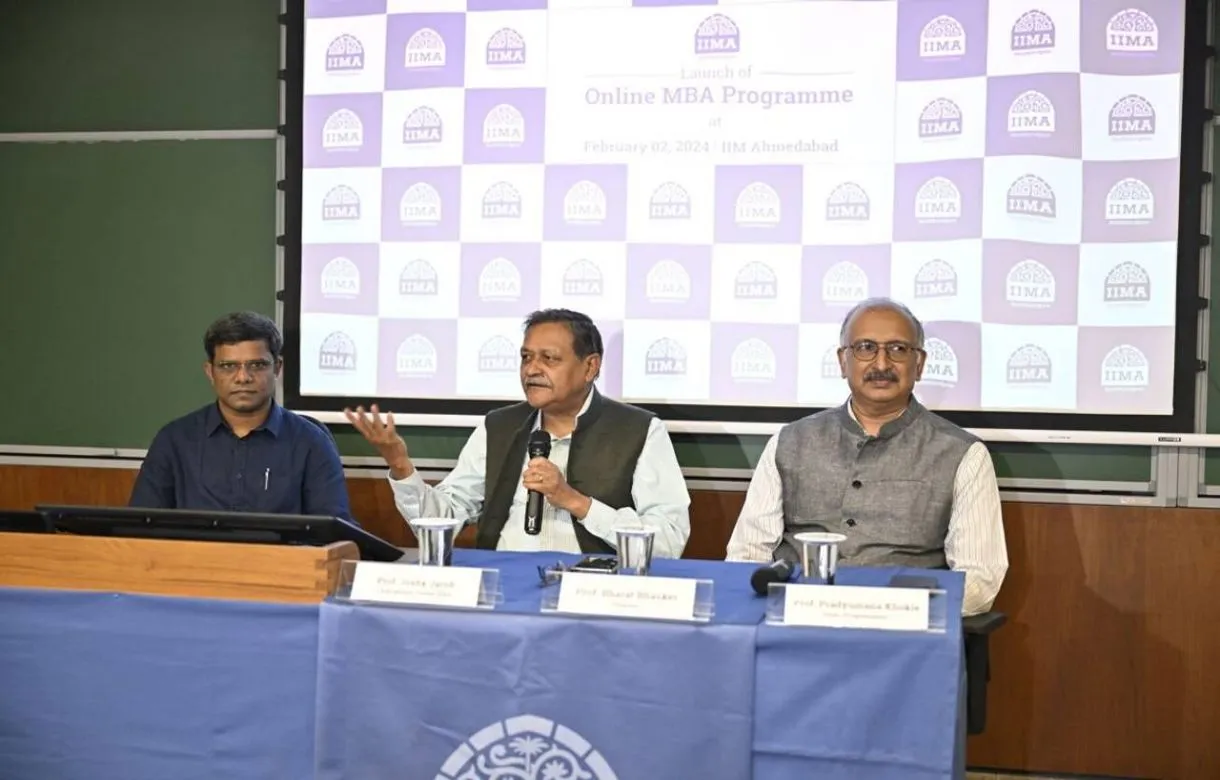
The Indian Institute of Management, Ahmedabad (IIMA), has launched a two-year Master of Business Administration (MBA) programme in hybrid mode for working professionals and entrepreneurs.
The online MBA programme in blended mode comprises, on-campus, face-to-face, and live interactive online sessions, designed for a seasoned cohort of participants with a minimum of three years of work experience.
To be considered for admission, applicants must have a bachelor’s degree or its equivalent and a minimum of three years of full-time work experience. The admission process involves an admission test (IIMA Admission Test (IAT)/ CAT/ GMAT/GRE) and a personal interview.
The programme will primarily utilise synchronous online learning, supplemented by five distinct on-campus modules. The programme emphasizes a case-based approach to provide practical learning experiences that will equip participants with the necessary knowledge and skills for success in today’s dynamic business landscape, as announced by the institute.
On the launch of the hybrid programme, the director of the institute, Professor Bharat Bhasker expressed his excitement over the launch of the new MBA programme and said the Online MBA programme will expand IIMA’s reach and provide world-class education to working professionals and entrepreneurs around the world.
This innovative program combines the flexibility of online learning with the richness of on-campus interaction, ensuring participants gain the knowledge and skills they need to succeed in their chosen careers, he added.
Professor Joshy Jacob, Chairperson of the Online MBA programme, explained the format of the program. He said that the curriculum is designed to provide participants with the necessary functional and organizational skills to succeed in a challenging world. The program aims to upskill working professionals by teaching them managerial decision-making frameworks that are rooted in human behaviour, economics, finance, and other relevant areas.
In-person classes held at IIMA focus on complex interpersonal and organizational dynamics that are difficult to master. Conversely, online sessions conducted through live classes concentrate on content that is more suitable for quantitative and systematic analysis.
Aspirants enrolling for the programme are requested to visit the official website of the institution for more details.
Education
At IIT Kharagpur convocation, President Droupadi Murmu says not a single Indian institute among Top 50 in the world
Over 3000 students received degrees during the institutes 69th convocation ceremony. President Murmu congratulated all the students and wished them best of luck for the future. The president noted that 21% of the students receiving the degrees are daughters. She wished them special congratulations.
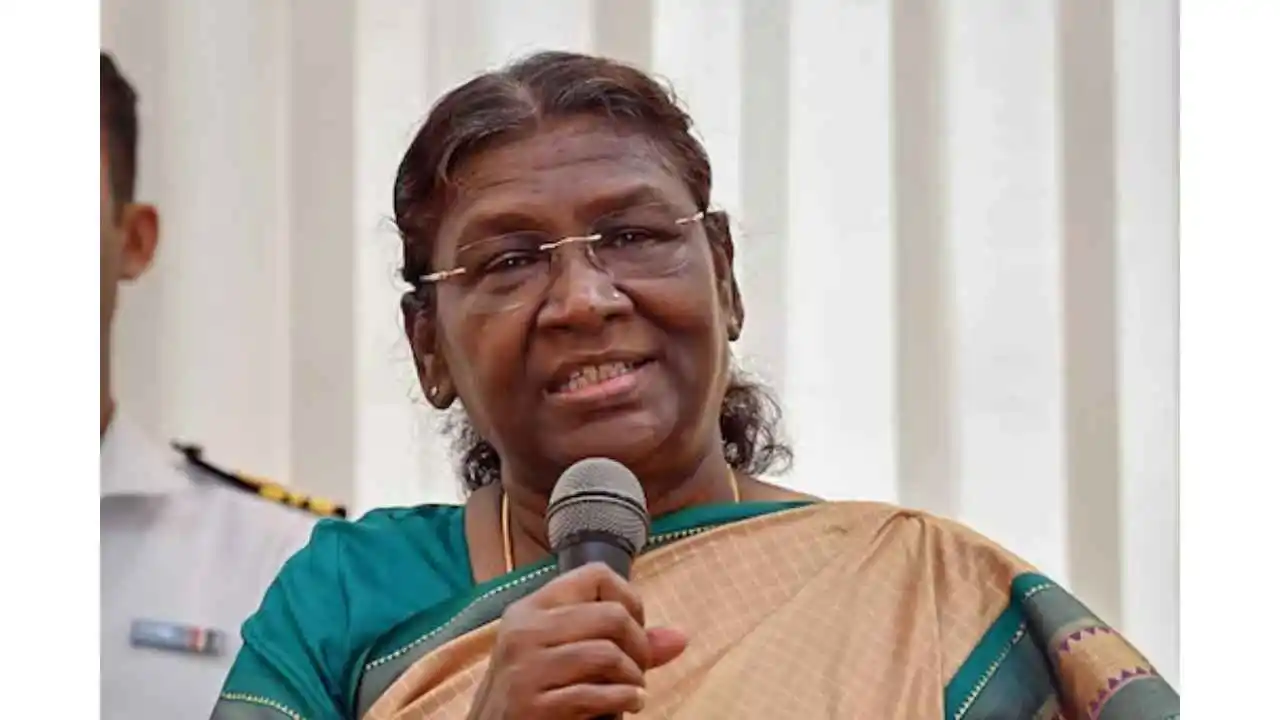
While addressing the 69th annual convocation of IIT Kharagpur, President Droupadi Murmu on Monday said there is not a single institute in the country has been able to secure a place in the top 50 educational institutions of the world and IIT Kharagpur, being the oldest IIT in the country, must work in that direction. She added that while a good ranking is not important, it helps attract top faculty from across the world and increases the reputation of the country.
President Murmu said that everyone must get access to technology. It helps lessen the gap in the society and digital payment is very good example of the same. She said technology should be used for promoting social justice and equality and should not widen the gap in the society. The President gave the example of Digital Payment System Technology is the best example of simplifying the lives of the common people.
She said today even the smallest shopkeepers are using digital payment for very small amounts. Over 3000 students received degrees during the institutes 69th convocation ceremony. President Murmu congratulated all the students and wished them best of luck for the future. The president noted that 21% of the students receiving the degrees are daughters. She wished them special congratulations.
She said she believed that greater participation of women in the field of science and technology is important for a healthy and strong society. A total of 9 students were awarded gold medals by the IIT on Monday. President Murmu said that by year 2047, the nation has set the goal of a making India a developed country. Keeping this vision mind, the government of India is moving ahead with the idea of inclusive growth. The President said the students have to make revolutionary efforts to develop and bring technology to the ground.
Education
CBSE announces Class 10th, 12th board exam date
CBSE class 10th and 12th board exams are scheduled to take place from 10:30 am to 1:30 pm. The 55-day board exam period starts from February 15 to April 2.
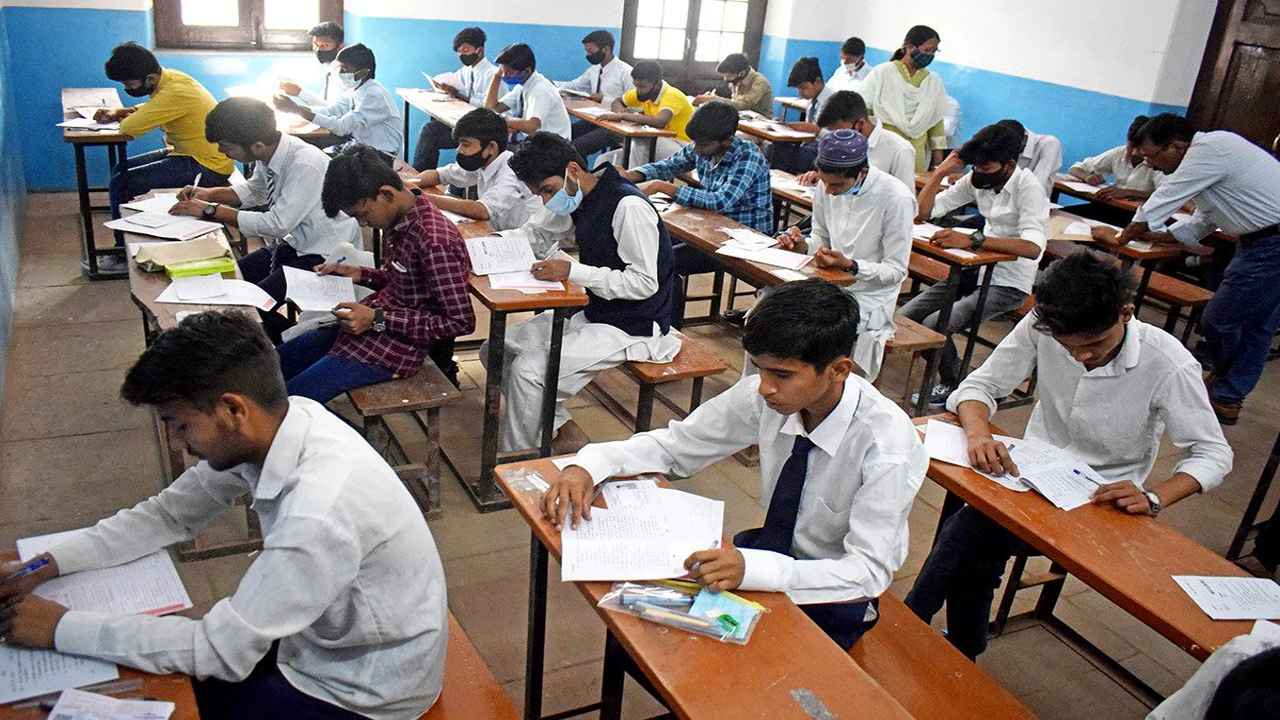
The date sheet for the class 10 and 12 board exams in 2024 has been released by the Central Board of Secondary Education (CBSE) today, December 12.
It can be found on their official websites, cbse.gov.in and cbse.nic.in. Exams for classes 10 and 12 will start on February 15. The complete exam schedule has now been released available by the board.
CBSE class 10th and 12th board exams are scheduled to take place from 10:30 am to 1:30 pm. The 55-day board exam period starts from February 15 to April 2. The class 12 examinations will end on April 2, while the class 10 board exams will end on March 13.
Exams for class 10 English, science, social science and maths are scheduled to be held on February 26, March 2, March 7, and March 11, respectively. The exams for class 12 will be begin from accountancy, which will be held on March 23, pol science will held on March 22, economics on March 18, and history on March 28. Information technology and computer science will conclude the exam on April 2.
20% of the questions on the CBSE Board Exam 2024 question paper will be response-type questions, and 50% of the questions will be competency- or case-based. 30% of the questions will be a mix of long and short answer questions, and 20% of them will be multiple-choice (MCQ) questions. For the previous year’s board exams, 38,64,373 students registered in total.
The criterion for calculating percentages in the Class 10 and 12 board exams of 2024 has been announced by the CBSE. Students in classes 10 and 12 will not be given an overall division, distinction, or aggregate beginning this year.
Last year, the results for class 10th and 12th were announced on May 12, 2023. However, as of yet CBSE has not decleared the result dates.
-

 Entertainment21 hours ago
Entertainment21 hours agoDo Aur Do Pyaar social media review: Social media users say Vidya Balan, Pratik Gandhi deliver standout performances in this adorable film
-
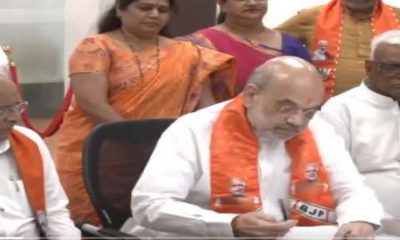
 2024 Lok Sabha Elections22 hours ago
2024 Lok Sabha Elections22 hours agoLok Sabha elections 2024: Amit Shah files nomination from Gandhinagar
-

 Entertainment23 hours ago
Entertainment23 hours agoYami Gautam starrer Article 370 releases on Netflix today
-
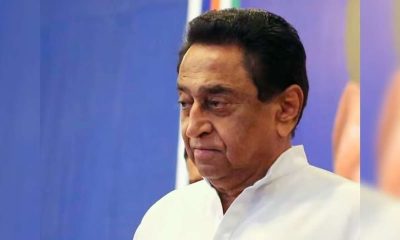
 2024 Lok Sabha Elections18 hours ago
2024 Lok Sabha Elections18 hours agoDeserted by key supporters, the Kamal Nath story looks set to wind to an end in Chhindwara
-

 Entertainment20 hours ago
Entertainment20 hours agoAditya Roy Kapur, Sara Ali Khan’s Metro In Dino to release this November
-
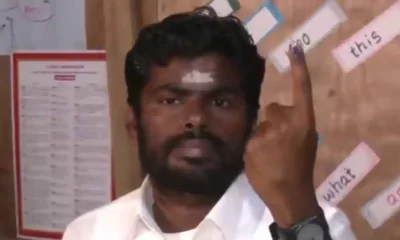
 2024 Lok Sabha Elections23 hours ago
2024 Lok Sabha Elections23 hours agoTamil Nadu BJP chief K Annamalai says party will sweep Karnataka and emerge victorious in Telangana, accuses DMK, AIADMK of influencing voters in Coimbatore
-

 2024 Lok Sabha Elections23 hours ago
2024 Lok Sabha Elections23 hours agoLok Sabha elections 2024: Newly married couple cast vote in Jammu and Kashmir’s Udhampur, video goes viral
-
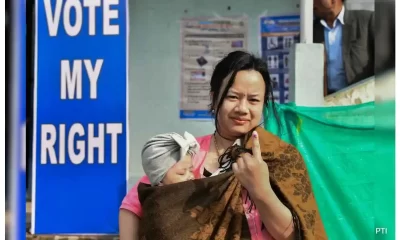
 2024 Lok Sabha Elections20 hours ago
2024 Lok Sabha Elections20 hours agoLok Sabha Elections 2024: Nearly 40% voter turnout till 1pm

